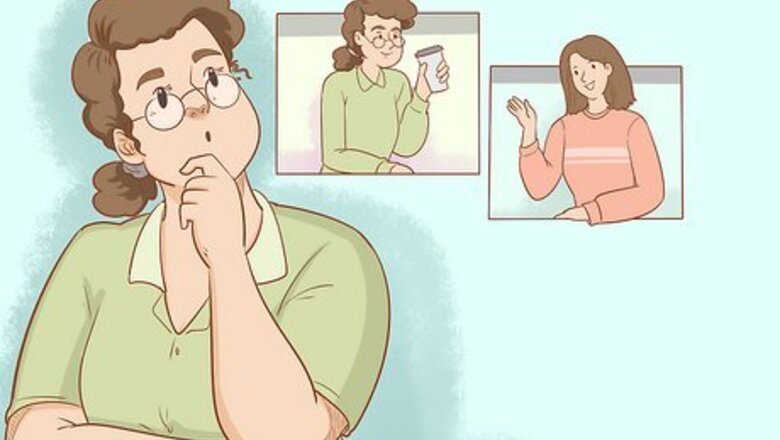
views
Let your friendship just naturally fade away.
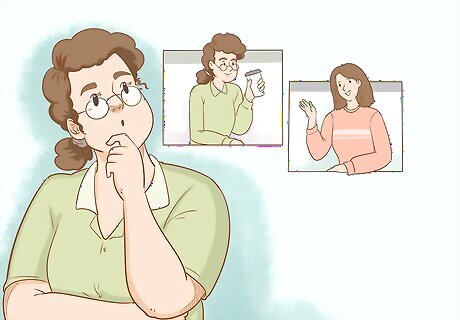
Limit spending time with them and it’ll happen naturally. Probably the simplest way to put an end to your friendship is to just stop seeing them. Limit your interactions to group settings and avoid hanging out with them as much as you possibly can. Over time, your friendship will fade without much effort at all, and there may not be any fallout with your mutual friends. It could take several months and maybe even years for a friendship to die out on its own, but it’ll happen eventually. You may not even need to really discuss your feelings too much this way. All you need to do is patiently wait for your friendship to fizzle out.
Sit down with your friend if you need closure.
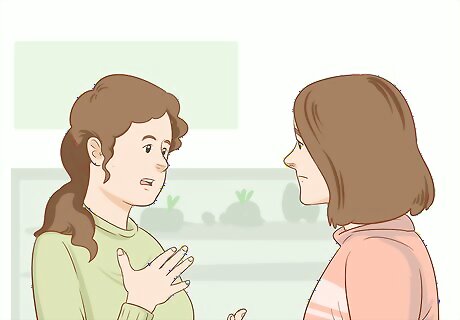
Tell them it’s over and you want to move on. If you do want to discuss the end of your relationship with your friend, tell them you need to talk to them. Choose a neutral location where you can talk privately, such as a quiet cafe or a park. Talk about your feelings using “I” statements so they don’t feel like you’re blaming or accusing them. Tell them you think that it’s best if you put an end to your friendship and that you hope you can both peacefully move on. For instance, you could say, “I don’t feel like my needs are being met and I think that it would be better for both of us if we stopped being friends.” You could also try, “I haven’t been super happy in a while and I don’t think things are working out really well. I think it would be better if we went our separate ways.” It may be difficult to sit down with a long-time friend, but it may also be the kindest, most respectful way to tell them.
Drop the friendship entirely if it’s toxic.
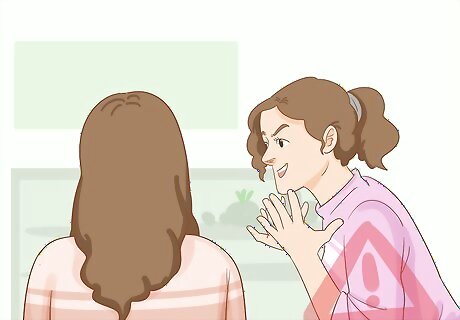
Just remove them from your life without a word. If you’re dealing with an abusive or toxic friend, you don’t have to give them notice or talk about how much they’ve negatively affected you. Block their phone number, remove them from your social media, and just stop talking to them. If they’re really pushy and won’t take the hint, just tell them to stop contacting you. Keep it short and simple with something like, “Please stop contacting me” or “I’m not interested in talking.” While this is the most extreme way to end your friendship, if you’ve been dealing with an abusive friend, you don’t have to put up with it anymore.
Reach out to your close friends after you end the friendship.
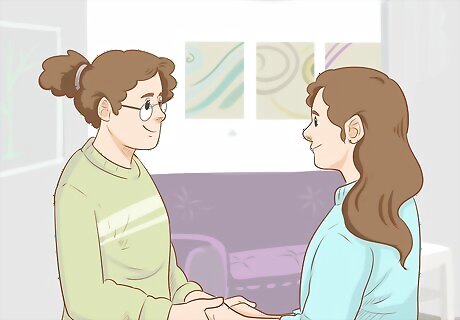
Commit to being a better friend to the ones you love. Grab a pen and paper, pull up a word document, or fire up the notes app on your phone or tablet. Write down every mutual friend you share with your former friend and use your list to contact your mutual friends. Catch up with them and ask them how they’re doing. Tell them that you want to reconnect with them and make your friendship even stronger. If you want, you can write down a nice thing you could do for them to reconnect and maintain your friendship. For instance, you could write “Calvin Johnson. Invite him over for pizza” or “Jackie Smith. Ask her to come to the beach with us.” If you’ve been unhappy with your former friendship, you may have neglected some of your other friends. Don’t worry. You have plenty of time to make things up to them.
Tell your friends what’s going on.
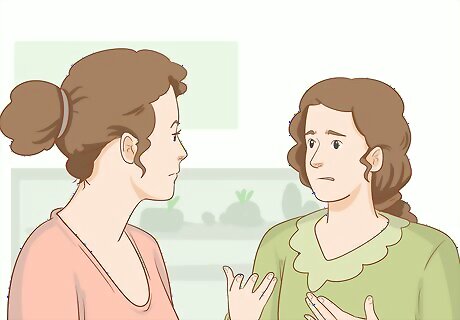
Don’t try to hide what’s happening. Your mutual friends will find out about your friendship ending anyway. Be upfront about it, but keep it classy. Talk about why you had to end your friendship and explain that it’s over between you and your former friend without trash-talking them. They’ll appreciate the honesty and it gives you a chance to tell your side of things. Your former friend may misrepresent or lie about what happened between you. Talk to your mutual friends and tell them the truth about what happened. You could say, “Steve and I just haven’t been close for a while and I needed to make some changes in my life.”
Don’t force your mutual friends to take sides.

Let them remain friends with both of you, if they'd like. It's fine to tell your friends your side of the story, but don't trash-talk the other person. Allow them to decide who they want to be friends with. You may lose some of them, but if they weren’t fully committed to being your friend, then it may be for the best. Respect the decisions they make. If they choose to be friends with your former friend, so be it.
Acknowledge your former friend when you see them.
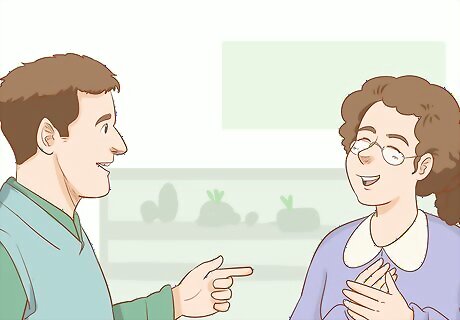
Be civil if you run into them. Because you have mutual friends, it’s very possible that you might run into your former friend at a party, coffee shop, or event. Don’t ignore them if that happens so your mutual friends don’t feel awkward. Instead, give them a pleasant, civil acknowledgment and don’t stress about it too much. For instance, you could try something like, “Hi, hope you’re doing well” or “Hey, nice to see you” or even, “Hi, you look good.” In time, you won’t be as bothered about seeing them somewhere. Just stay calm and try to be civil when it happens.
Be honest but kind about your former friendship.
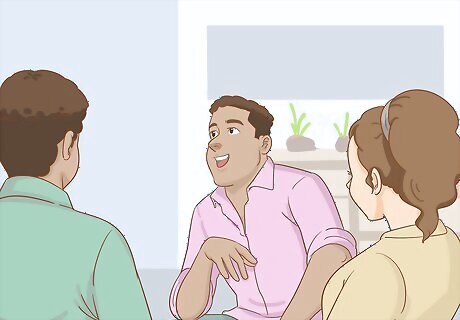
Tell people what happened without making it contentious. Whenever your former friend comes up in conversation, tell people that you haven’t spoken to them. If they press you and ask if you aren’t friends with them anymore, tell them the truth, but keep it cordial. Try, “No, we aren’t friends anymore, and I don’t want to get into the details” or “Unfortunately, we aren’t friends anymore, and I hope you can understand why I don’t want to talk about it too much.” Don’t try to hide the end of your friendship either. Chances are they may hear it from your former friend anyway. It’s better to be honest with your mutual friends and other people when they ask.
Try not to talk negatively about your ex-friend.
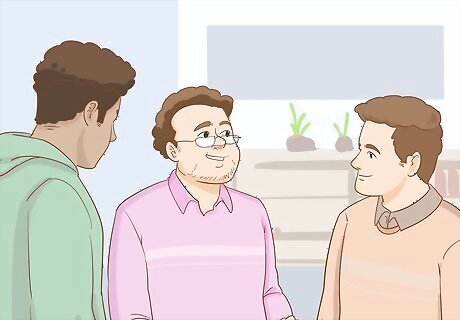
It’ll only make you look bad. No matter what they did, resist the temptation to bad-mouth your former friend whenever they come up in conversation. Just explain that you aren’t friends with them anymore without getting into any of the dirty details. People are likely to perceive you more positively if you don’t resort to trash-talking.












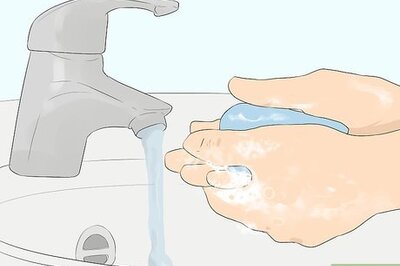

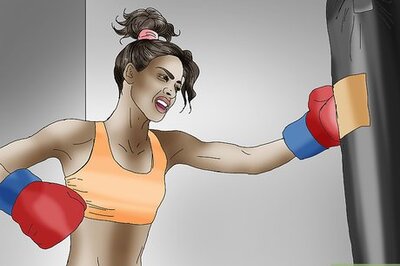


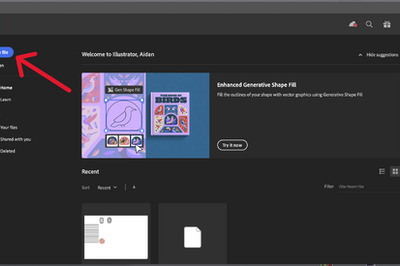
Comments
0 comment